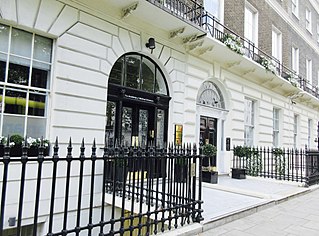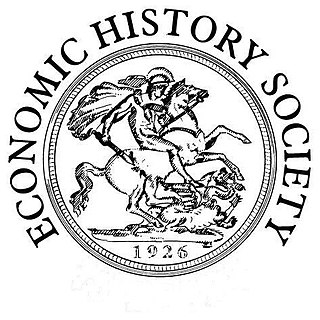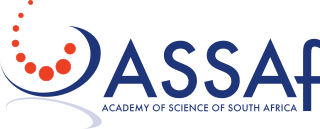
The British Academy for the Promotion of Historical, Philosophical and Philological Studies is the United Kingdom's national academy for the humanities and the social sciences. It was established in 1902 and received its royal charter in the same year. It is now a fellowship of more than 1,000 leading scholars spanning all disciplines across the humanities and social sciences and a funding body for research projects across the United Kingdom. The academy is a self-governing and independent registered charity, based at 10–11 Carlton House Terrace in London.

A learned society is an organization that exists to promote an academic discipline, profession, or a group of related disciplines such as the arts and sciences. Membership may be open to all, may require possession of some qualification, or may be an honour conferred by election.
A national academy is an organizational body, usually operating with state financial support and approval, that co-ordinates scholarly research activities and standards for academic disciplines, and serve as public policy advisors, research institutes, think tanks, and public administration consultants for governments or on issues of public importance, most frequently in the sciences but also in the humanities. Typically the country's learned societies in individual disciplines will liaise with or be coordinated by the national academy. National academies play an important organisational role in academic exchanges and collaborations between countries.
An academician is a full member of an artistic, literary, engineering, or scientific academy. In many countries, it is an honorific title used to denote a full member of an academy that has a strong influence on national scientific life.

The Slovak Academy of Sciences is the main scientific and research institution in Slovakia fostering basic and strategic basic research. It was founded in 1942, closed after World War II, and then reestablished in 1953.

The Australian Academy of Science was founded in 1954 by a group of distinguished Australians, including Australian Fellows of the Royal Society of London. The first president was Sir Mark Oliphant. The academy is modelled after the Royal Society and operates under a Royal charter; as such, it is an independent body, but it has government endorsement. The Academy Secretariat is in Canberra, at the Shine Dome.
The American Council of Learned Societies (ACLS) is a private, nonprofit federation of 75 scholarly organizations in the humanities and related social sciences founded in 1919. It is best known for its fellowship competitions which provide a range of opportunities for scholars in the humanities and related social sciences at all career stages, from graduate students to distinguished professors to independent scholars, working with a number of disciplines and methodologies in the U.S. and abroad.

The Academy of Medical Sciences is an organisation established in the UK in 1998. It is one of the four UK National Academies, the others being the British Academy, the Royal Academy of Engineering and the Royal Society.
The International Social Science Council (ISSC) was an international non-governmental organization promoting the social sciences, including the economic and behavioural sciences. Founded in 1952, the organization was based out of UNESCO headquarters in Paris, France.

The Economic History Society (EHS) is a learned society that was established at the London School of Economics in 1926 to support the research and teaching of economic history in the United Kingdom and internationally. The society also acts as a pressure group working to influence government policy in the interests of history and economic affairs, alongside other societies and professional bodies with similar interests. In addition, the Society regularly liaises with funding bodies such as Higher Education Funding Council for England, the Arts and Humanities Research Council, and the Economic and Social Research Council.
The Academy of Social Sciences is a representative body for social sciences in the United Kingdom. The academy promotes social science through its sponsorship of the Campaign for Social Science, its links with Government on a variety of matters, and its own policy work in issuing public comment, responding to official consultations, and organising meetings and events about social science. It confers the title of Fellow upon nominated social scientists following a process of peer review. The academy comprises over 1000 fellows and 41 learned societies based in the UK and Europe.
The Academy of the Social Sciences in Australia (ASSA) is an independent, non-governmental organisation devoted to the advancement of knowledge and research in the social sciences. It has its origins in the Social Science Research Council of Australia, founded in 1942.

The Committee on Publication Ethics (COPE) is a nonprofit organization whose stated mission is to define best practice in the ethics of scholarly publishing and to assist editors and publishers to achieve this.
A peak organisation or peak body is an Australian term for an advocacy group or trade association, an association of industries or groups with allied interests. They are generally established for the purposes of developing standards and processes, or to act on behalf of all members when lobbying government or promoting the interests of the members.

The Union Académique Internationale (UAI)—in English, International Union of Academies—is a federation of many national academies and international academies from more than 60 countries all over the world which works in the field of Humanities and Social Sciences.
The Australian Academy of Technology and Engineering (ATSE) is a learned academy that helps Australians understand and use technology to solve complex problems. It was founded in 1975 as one of Australia's then four learned academies. Its original name was the 'Australian Academy of Technological Sciences', but in 1987 the name was lengthened to include Engineering, as 'Australian Academy of Technological Sciences and Engineering'. In 2015, the Academy adopted a new business name, the 'Australian Academy of Technology and Engineering', reserving the Australian Academy of Technological Sciences and Engineering as its company name.
The Conservative Science & Technology Forum is a United Kingdom think tank and policy advisory body that consults industry, academia and other key figures on important technological and societal issues and puts these into mainstream political context.

The Academy of Science of South Africa (ASSAf) is the national science academy in South Africa. It was started in 1996, and encompasses all fields of scientific work. Its legal foundation is the Academy of Science of South Africa Act, Act 67 of 2001, which came into operation in May 2002.
The Learned Society of Wales is a national academy, learned society and charity that exists to "celebrate, recognise, preserve, protect and encourage excellence in all of the scholarly disciplines", and to serve the Welsh nation.

The Society for Scholarly Publishing (SSP) is a professional society, founded in 1978, dedicated to promoting and advancing communication and networking among all sectors of the scholarly communications community. It has approximately 1,100 members from 24 countries including publishers, service providers, librarians, researchers, and consultants.










